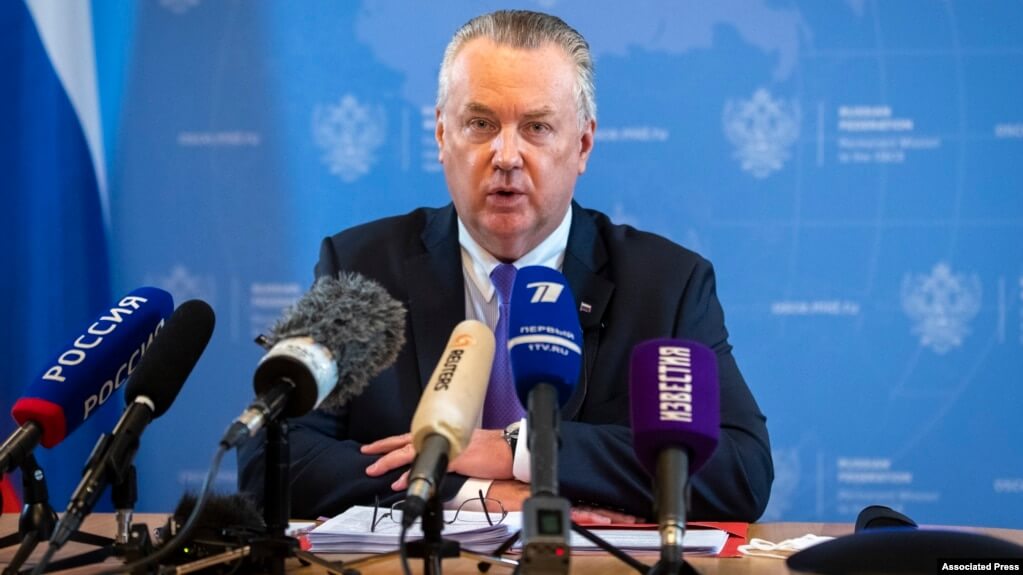On Thursday, the United States (US) and Russia took part in the Organization for Security and Co-operation in Europe (OSCE) Permanent Council meeting in an effort to carry on deliberations over tensions along the Ukrainian border. The meeting, similar to US-Russia bilateral talks on January 10 and the North Atlantic Treaty Organisation (NATO) meeting with Russia on January 12, failed to yield any substantive progress on Russian President Vladimir Putin’s security demands.
Following the meeting, Russia’s envoy to the OSCE, Alexander Lukashevich, said, “Regrettably, we have not heard an adequate response or some reaction to our proposals from our partners.” Lukashevich added that the OSCE only voiced their concerns and focussed on Russia’s “alleged” behaviour without taking into account the Russian demands regarding the serious situation in Ukraine. Last month, Moscow sent out a detailed set of security demands asking NATO to halt Kyiv’s accession into the military alliance and demanded that Washington cease its military activity near Russian borders.
According to Lukashevich, the OSCE was more interested in discussing current chair Poland’s agenda rather than Russia’s proposals. Lukashevich said that despite the OSCE’s broad overreach covering security in Europe, its activity is centred upon “the post-Soviet space.”
US Permanent Representative to the OSCE Ambassador Michael Carpenter said, “We’re facing a crisis in European security.” Carpenter highlighted that the presence of around 100,000 Russian troops along the Ukrainian border has raised questions about Moscow’s intentions about going into these talks. When questioned about what progress Thursday’s talks have made, Carpenter answered, “There was never any expectation that there would be some sort of agreement today.” Carpenter stressed that negotiation is a lengthy process and that the US has heard what Russia had to say and is willing to continue the dialogue in the future.

Thursday’s OSCE meeting in Vienna brings an end to the four-day long diplomatic engagement between Russia and the West. On January 10, Moscow and Washington met bilaterally in an eight-hour-long session of “frank and forthright” talks. Deputy Secretary of State Wendy Sherman, who led the discussion, said that the US discussed some “non-starters,” namely Russia’s protest against Ukraine joining NATO. Sherman also added that the discussions were not at the stage where the US and Russia could begin writing treaties. Russian Deputy Foreign Minister Sergei Ryabkov said the Americans took Russia’s proposal seriously despite making “no progress.”
On Wednesday, the NATO-Russia Council meeting took place, wherein Russia and NATO had a “very serious and direct exchange” over Putin’s proposals. The Bloc offered to raise issues such as NATO’s missile placement and setting verifiable limits on missiles, but NATO Secretary-General Jens Stoltenberg said Moscow was not prepared to talk about these issues.
Both the US and Russia downplayed the possibilities of having any major breakthrough even before the talks. Putin has warned that Moscow is prepared to respond militarily if the West fails to consider his demands. The US has threatened to impose severe economic sanctions on Russia if it continues its hostile behaviour towards Ukraine.

